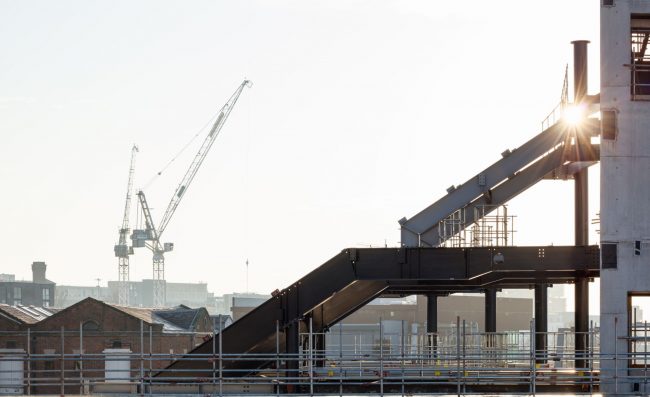A Utopian New Year!

A Utopian New Year!
from John McGrath, MIF’s Artistic Director and Chief Executive
Artists are, I believe, often a step ahead of the rest of society, imagining their way into futures and possibilities that the world in general has not yet dreamed of. With this in mind and at the end of a year which has often seemed deeply fractious, it was reassuring and inspiring to see how much of the work created by artists from around the world in MIF19 was Utopian, hopeful and joyous.
Whether escaping into different worlds with Laurie Anderson, or the creators of Invisible Cities, or taking a hard look at what divides us in works such as ANU’s contemporary re-imagining of Peterloo, The Anvil, and in the post-colonial politics of Tree, we were consistently taken on a journey towards hope, wonder and reconciliation. I am still amazed that so many thousands of people all gathered for the simple act of ringing bells together at the start of the Festival, following Yoko Ono’s instructions with such care and thoughtfulness. One of my favourite moments in the Festival was when Yoko instructed us to count the clouds, and thousands of heads looked to the overcast Manchester sky saying, almost in unison, ‘just one very big one!’ But it didn’t rain, and for much of the next 18 days, the sun shone on Manchester literally and metaphorically.
One of the joys of the Festival is the rediscovery of Manchester’s spaces. Whether finding a beer factory under Victoria Station with Japan’s Chim↑Pom, or creating a vast chamber of wonders in the courtyard of the Science and Industry Museum for Rafael Lozano-Hemmer’s Atmospheric Memory, some of our most popular pieces took people into unexpected and thrilling environments. And at the heart of everything was our re-imagined Festival Square, with its open stage presenting local and international talent all day every day, free to all.
Equally, productions like Maxine Peake and Sarah Frankcom’s Nico re-imagined the mental and historical landscapes of the city, mining our stories for unexpected beauty and meaning; while shows such as Claire Cunningham’s Thank You Very Much and Trajal Harrell’s Maggie the Cat turned popular culture inside out.
But it’s that Utopian spirit that most sticks in my mind and imagination at the end of the year. In creating their piece Utopolis, Berlin’s Rimini Protokoll asked themselves the question: ‘Why are we no longer allowed to imagine an ideal world?’ They felt that the attempt itself now is usually dismissed as ridiculous. To find an answer, they returned in their production to the local – the many places, from council meetings, to church services, to educational establishments, where people gather on a daily basis to build the world in which we live, to make things better.
The Utopian can often seem distant, theoretical, impossible, particularly in times like these. But what I realised reflecting on MIF19 is that actually, Utopia is found in the practical, day-to-day acts of ordinary people trying to make a difference; the teachers in Tania Bruguera’s School of Integration, the imaginary city built in Whitworth Park where animals and humans lived as equals for a weekend, and the many volunteers who gave their time during the Festival to welcome the world to their city.
There were many, many, brilliant artists featured in MIF19, and I’ve only mentioned a few here, but each of them was helping us find our way into another possible world – a world of shared imaginings – never bland, often challenging – but shared.
As we had towards 2020, exploring new possibilities for Manchester and for creativity, we will see a symbol of such imaginings rising above the ground behind Old Granada Studios – The Factory, a space where we can invent the art of the future, a space where we can gather to create new worlds together. I look forward to joining with the people of the city, and the artists of the world, in this Utopian, and therefore very necessary, adventure.



